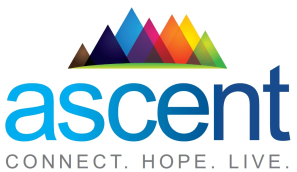The Importance Of Peers And Mentors In Recovery
Recovery is a journey, and if you are new to it, the whole thing may be mysterious. What does it mean to live a life of recovery? How will you do it? What happens when you have cravings or run into problems?
A Guide To Show You The Way
The recovery lifestyle is a fairly simple one. Simple does not necessarily mean easy. You abstain from drugs and alcohol, and you do your best to be honest, grateful and live life on life’s terms. You do the next right thing. You develop a spiritual practice that suits you, and you surround yourself with supportive peers who are also living this way.
While simple, it isn’t always easy, and if you have no experience in these matters, it feels overwhelming and unfamiliar. This is why it’s so important to have a mentor to guide you along, and to develop a support group of peers who are in your corner.
Mentors
Your first mentor in recovery may be a counselor in treatment. This is a person who will guide you through the first few days and weeks of your recovery. This relationship is a professional one, and not the same as the one you will have with your friends in recovery. You may not even like your counselor, but that does not mean you can’t learn from them.
The Role Of Your Counselor in Recovery
Your counselor will offer suggestions for your course of treatment, will be a sounding board and will help provide you with the tools and strategies you need to learn to live without using drugs and alcohol. This early period of recovery isn’t always easy, but your counselor can be an ally, if you let them.
It’s a good idea, though, to branch out and not become so dependent on your counselor that you don’t have anyone else to turn to. Even at this early stage, you should be cultivating relationships with peers. This is an ongoing process. Look for those who have already been where you have been. In treatment, you may have the opportunity to meet alumni, these are people who have already been through the program. They are not professional counselor, they are simply people who have more experience staying sober than you. They can be tremendously supportive and helpful. These are people you want to ask questions of. How did they do it? How did they stay in treatment even when the going got tough? How are they still sober now, after treatment?
If you have the opportunity to go to meetings, you may want to start looking for a sponsor. This may happen in treatment, or soon after you get out. The sponsor relationship is an important one, and in twelve-step recovery, your sponsor is your primary mentor.
Choosing A Sponsor
Ideally, you’ll choose a sponsor who has good recovery. What does this look like? How do you know if you are making the right choice? You’ll hear that you should choose someone who has what you want. What does this mean?
Look for the person who seems happy and at peace with himself or herself, who seems accepting and approachable and genuinely happy to be sober. This isn’t a person embroiled in drama or spewing gossip at meetings. This is a person who carries him or herself with confidence and greets people with a warm smile. They may have other attributes that attract you to them, as well. They may have a story you relate with or something else that leads you to believe they will be a good fit for you. Don’t overthink it, though. The most important thing about your sponsor should be that they are working a solid program of recovery, and that they are willing to make the time to sponsor you.
While having a sponsor is important, always remember to be nurturing your peer relationships. Your sponsor isn’t going to be available at your beck and call, so you should always make sure you have a support group to bounce things off of.
What If You Aren’t In Twelve-Step Recovery?
It’s pretty easy to find mentors and peers in the rooms of twelve step programs. But what if you aren’t recovering that way? How do you find the help you need? One of the biggest enemies of recovery is isolation. For people who aren’t in twelve step recovery, it isn’t always easy to find people to relate to. There are plenty of alternatives, though. Try to find other people who are clean and sober. They are out there. Ideally, the majority of your social base should be people who are not using. If you have a spiritual or religious practice, they can be a great source of support. Going online and looking for clean and sober meetups may yield results. Social media is another way to meet people who are sober. There are even apps and websites that can help connect you with peers.
The bottom line is that you shouldn’t be attempting to do this all alone. Surround yourself with positive people who are aware of what you are trying to do and support you in your new lifestyle. This is how you will continue to recover.
Rose Lockinger is a passionate member of the recovery community. A rebel who found her cause, she uses blogging and social media to raise the awareness about the disease of addiction. She has visited all over North and South America. Single mom to two beautiful children she has learned parenting is without a doubt the most rewarding job in the world. Currently the Outreach Director at Stodzy Internet Marketing.
You can find her on LinkedIn, Facebook, & Instagram
